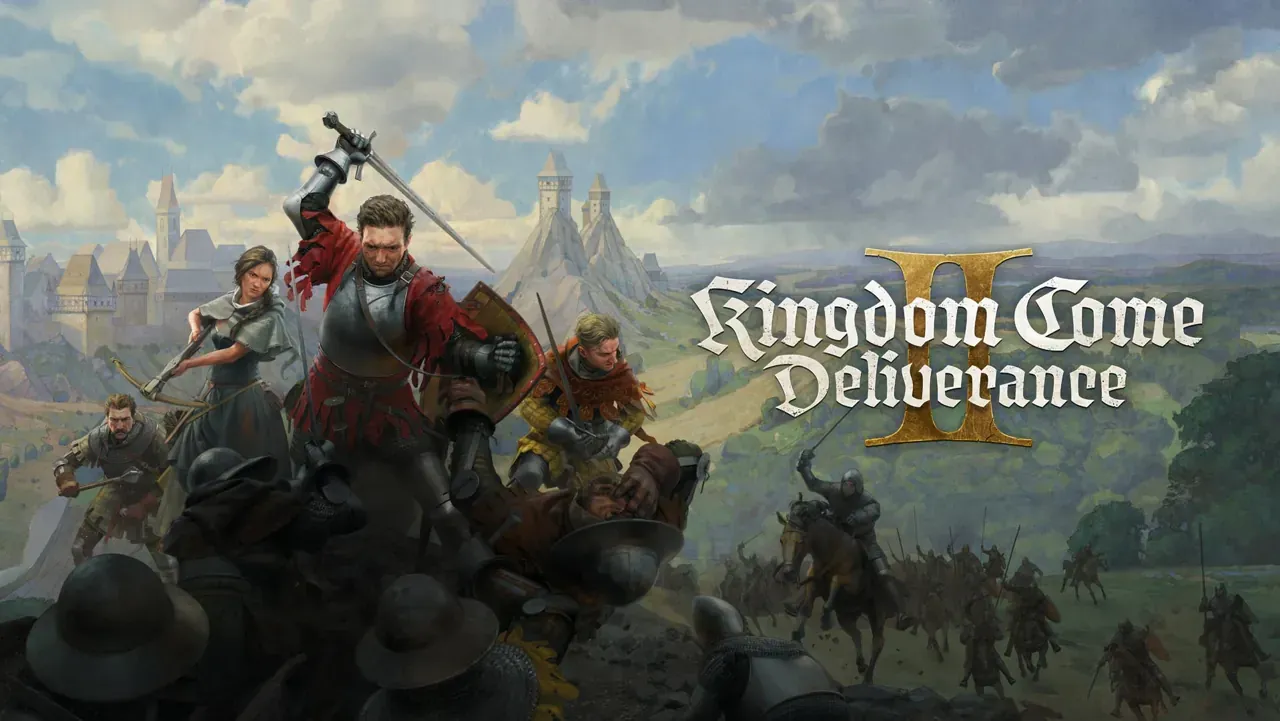The distributor provided a review copy.
The first thing you'll notice about Kingdom Come: Deliverance II is that it's a beautiful game. Make no mistake, this is the most immersive and fully realized world ever created for a videogame. At its best, it's akin to time travel. A way for us to experience the past in all its wonder and glory without leaving our house.
The second is that while Deliverance II is beautiful to look at, it's often a frustrating experience that pushes the player back at the weirdest times. In its steadfast pursuit of "realism", it forgoes fun and risks becoming a chore. Luckily, thanks to one of the best stories in any RPG of the past few years, Deliverance II overcomes itself and claims its title as one of the premiere games of 2025.
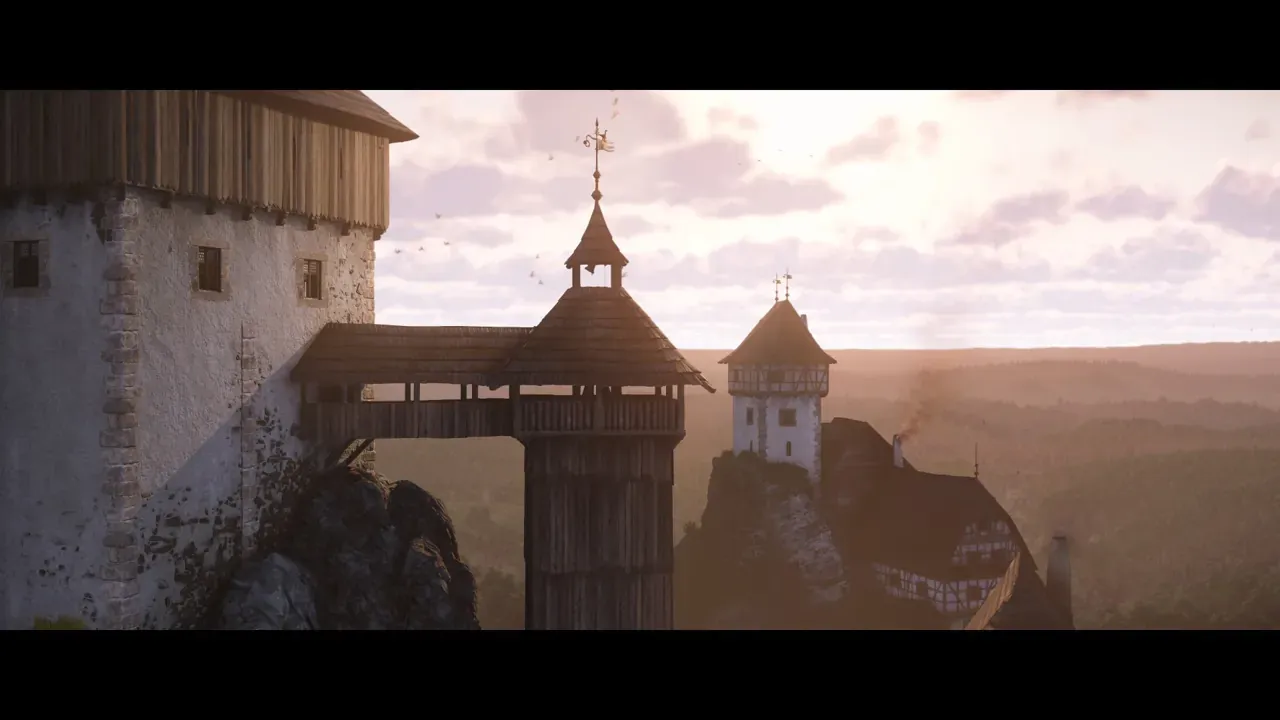
The Story
Deliverance II picks up in the immediate aftermath of the first game. Henry and his best friend Hans travel to the Bohemian Paradise to deliver a call-to-arms for noble lords. Nothing goes according to plan, and soon both men find themselves on the run in a strange part of the country with no allies to call on. As with the first game, big things have small beginnings, and it's not long before Henry is at the center of great political intrigue and skirmishes that will shape the face of Europe.
The first ten hours of Deliverance II could be considered an extended tutorial, and it takes some time for the story to pick up in earnest. It's never boring, and there's always enough intrigue and boys-own-antics to keep things lively. But there is a clear sense that everything in the first half is just a build-up to the larger, more expansive second act that brings the action to Kuttenberg.
Once things get going, Deliverance II is like an interactive Ridley Scott movie. A vast historical epic that plays fast and loose with realism to tell a rollicking story about friendship, power, faith, love, and goodness in the face of overwhelming odds. At times, I found myself wishing it was a linear experience just so I could spend more time with the main cast in tightly scripted missions because they were so much fun. Whether it's infiltrating religious councils or getting drunk with a roaming band of Cuman mercenaries, Deliverance II has the freewheeling and chaotic energy of a Like a Dragon title.
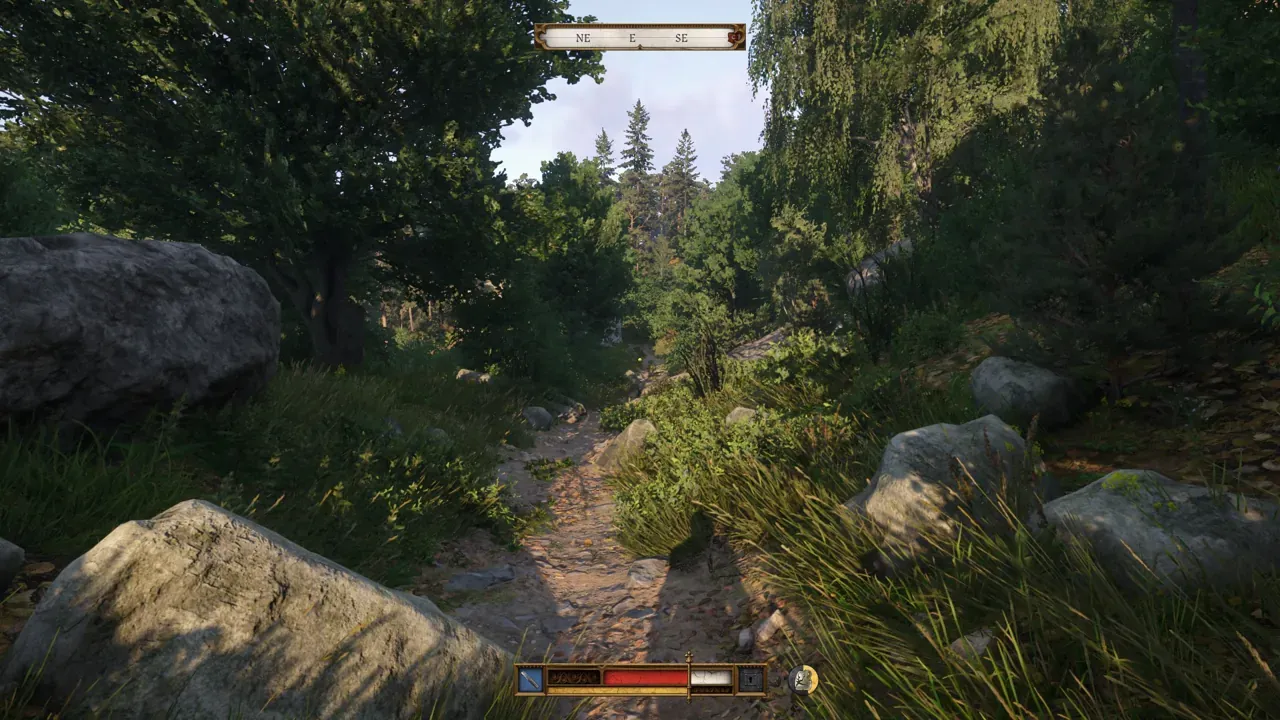
But to get there, you have to first drudge through some complications. For me, they almost tipped the scales to giving up, but only just. The first act progresses in fits and starts, often coming to a halt with some dreary design choices just as you think it will open up. Henry and Hans are separated, reunited, and separated again to the point that it feels like the game can't decide what kind of story it is. There's a constant sense of "hurry up and wait", that robs the narrative of its pacing.
It also comes with complications of its own, as Deliverance II wraps up plot points from the first game with only flimsy recounts to new fans. Henry's parents get their flashbacks in a way that would make Batman proud, but all other characters are introduced with barely a sentence to frame them in the big picture. There's a journal that helps, but it's nowhere near as effective as the grand database in, say, Final Fantasy XVI.
There's also a weird sense of hostility towards certain groups that casts a pall over the first act of Deliverance II. A major villain, who happens to be gay, is portrayed as an effeminate schemer who orphans young boys so he can groom them into lovers. It's an ugly stereotype from the 90s that is as dated as it is distasteful. When you finally kill him, the game rewards you with an achievement featuring a man swallowing a sword: a less than subtle nod at a slur adopted by quasi-medievalist fiction in the past decade.
This stuff is worth noting because it's in the second act that Deliverance II turns the story around and becomes one of the most well-written and nuanced adventures in recent memory. Every character is well-rounded, every conflict believable, and, ultimately, it features one of the most devastatingly honest portraits of love between men that grows from friendship into something deeper.
I honestly did not expect it after the first act, and I'm so happy to have been proven wrong. I love everything about the second act, to the point that while my objections over the pacing and certain depictions in the first half still apply, they're minute in comparison to how good Deliverance II becomes. By the time it ended, around 50 hours in total for the main campaign, I was ready for more just so I could spend more time with these lovable misfits.
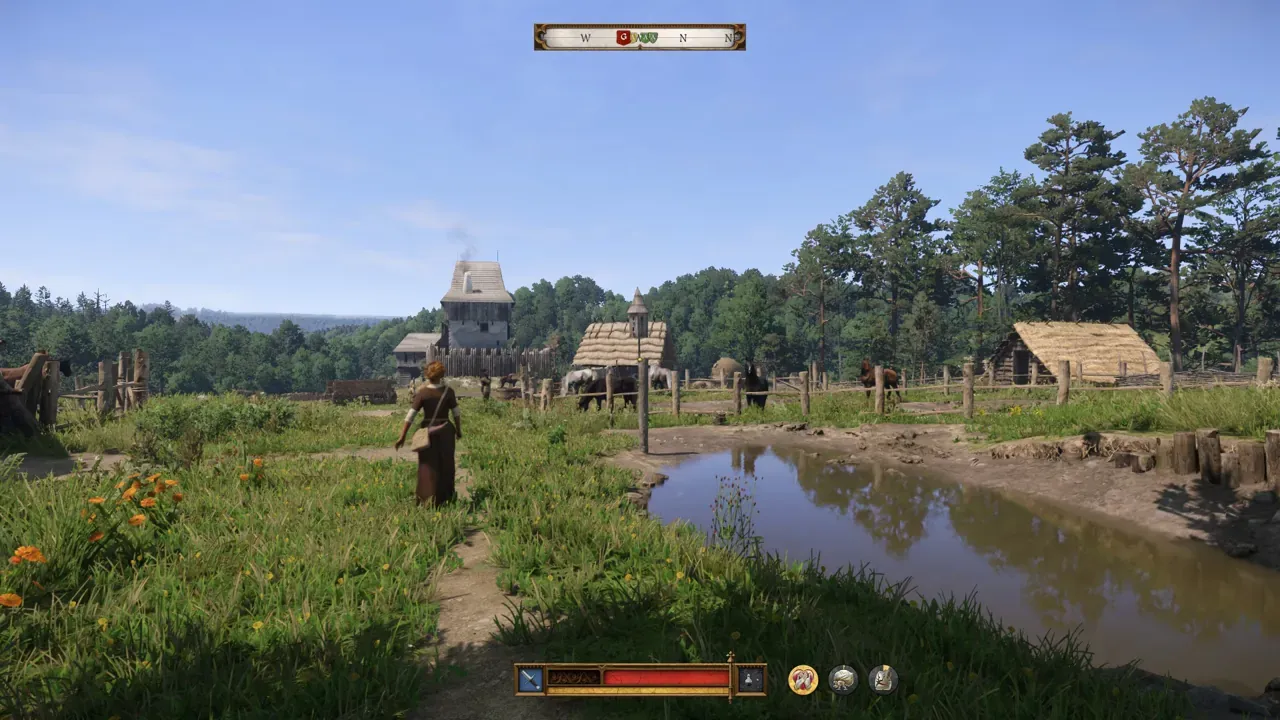
The Mechanics and Accessibility
While some elements from Kingdom Come: Deliverance have been updated for the sequel, the successor is still a frustratingly inaccessible title that keeps players at an arms reach. Some will love it, naturally, for its uncompromising manner and emphasis on "realism", but many will lose out on a great adventure because the gameplay proves such a chore.
To start with, there are no accessibility settings beyond some minor inclusions for text sizes. If you have any motor function or cognitive disabilities, you will have a bad time with Deliverance II. Combat is as fussy as ever, even though it has seen some minor improvements in the past years. But it's lockpicking and thievery that prove most frustrating, as they require impeccable precision for most of the game. It's only after you unlock certain choice skills that even the hardest locks become manageable, and by then much of the story is already over.
Combat is just as punishing as before until it suddenly isn't. As a word of warning, you'll want to emphasize tank-like strength and heavy armor from the very beginning if you want to avoid frustrations. Especially towards the end, where Deliverance II consistently pits Henry against mobs of enemies. There's a constant wedge between intent and desire, as Deliverance II's mechanics aim for a semblance of hardcore realism, while its story goes for the rollicking fun of an action adventure. It takes until the very end for it to find a balance and, when it does, the result is a blast. It's just a shame that's around 40 hours into the game.
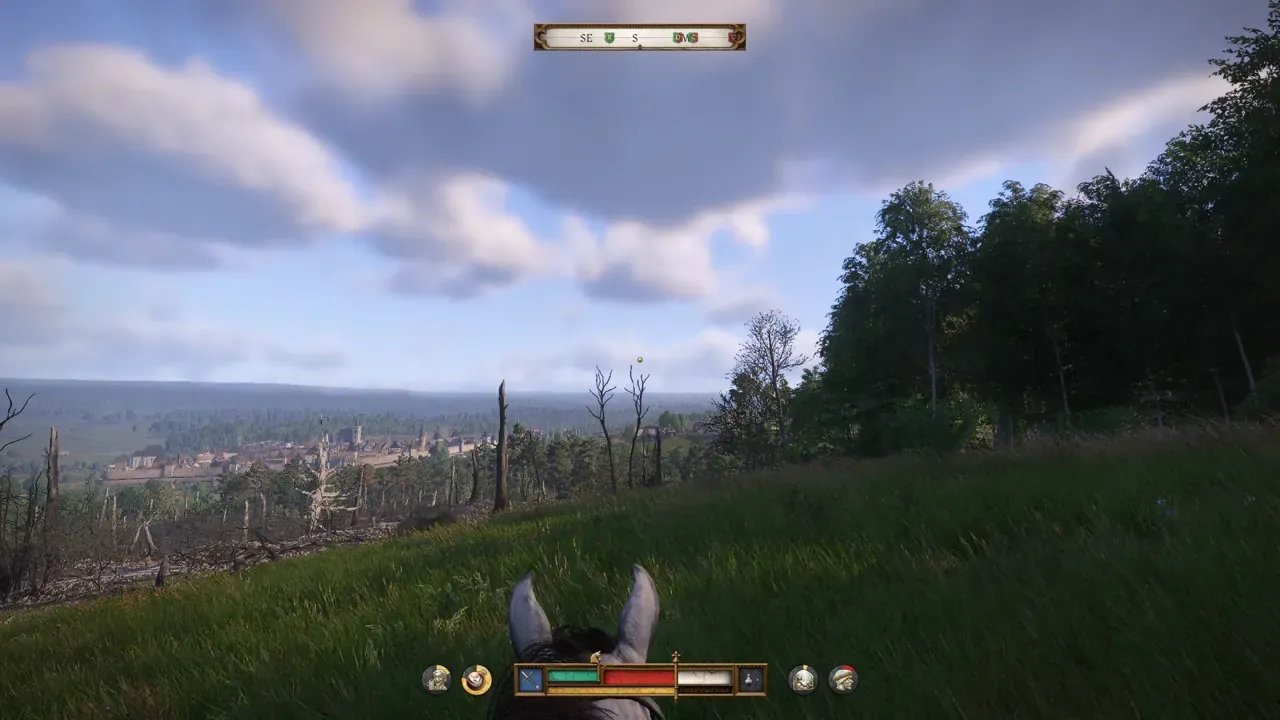
Another area where Deliverance II struggles is dialog accessibility. Granted, this is a new area that most games are still figuring out, but it's worth pointing out.
There are only a few indicators as to what Henry's dialog or choices aim for, and it's usually up to the player to get an inkling of how an NPC will react to anything you say. But this turns out problematic when Henry's dialog is in direct opposition to the option the player is given. A seemingly innocent line becomes a hostile remark, which in turn drags Henry's precarious reputation into the mud.
Similarly, it's always unclear how the skill checks are handled. There's a perk that allows you to see their difficulty rating, but even that only obfuscates how the final result actually works. You can have a high level of speech and still randomly fail a check that worked in a previous conversation.
Because the saving mechanics remain as unintuitive as ever, this also leads to an unwillingness to experiment or explore, as a fail-state could potentially force you back an entire hour of gameplay.
The only way to save at will is to choose the "save and quit" option in the menu. Otherwise, Henry must drink a magic potion called Savior Schnapps, which is either bought or made at an alchemy table. At the start of the game, for the first 10 hours or so, these potions are worth their weight in gold. This means that for the longest time, you're running in a linear path to avoid death and major screw-ups so you don't have to play huge swaths of the story all over again.
At worst, the game turns extremely tedious in lengthy stealth sequences that feature automatic save points very far apart. Without Schnapps, a single clumsy move or a glitch in the finicky AI has you running through the same routine over and over again.
Oh, and Henry still can't swim, which leads to numerous invisible walls as the brave hero won't even cross certain puddles because they're too deep for him.
Granted, as the game opens up and your skills pile up, Henry's adventure becomes an easier and far more fun experience even without some of the accessibility settings. But that's just for me, and I'm on the spectrum in a place where I can manage most titles without too many handicap options. Many others won't be as lucky, and it's a shame that any recommendation of Deliverance II comes with that huge caveat.
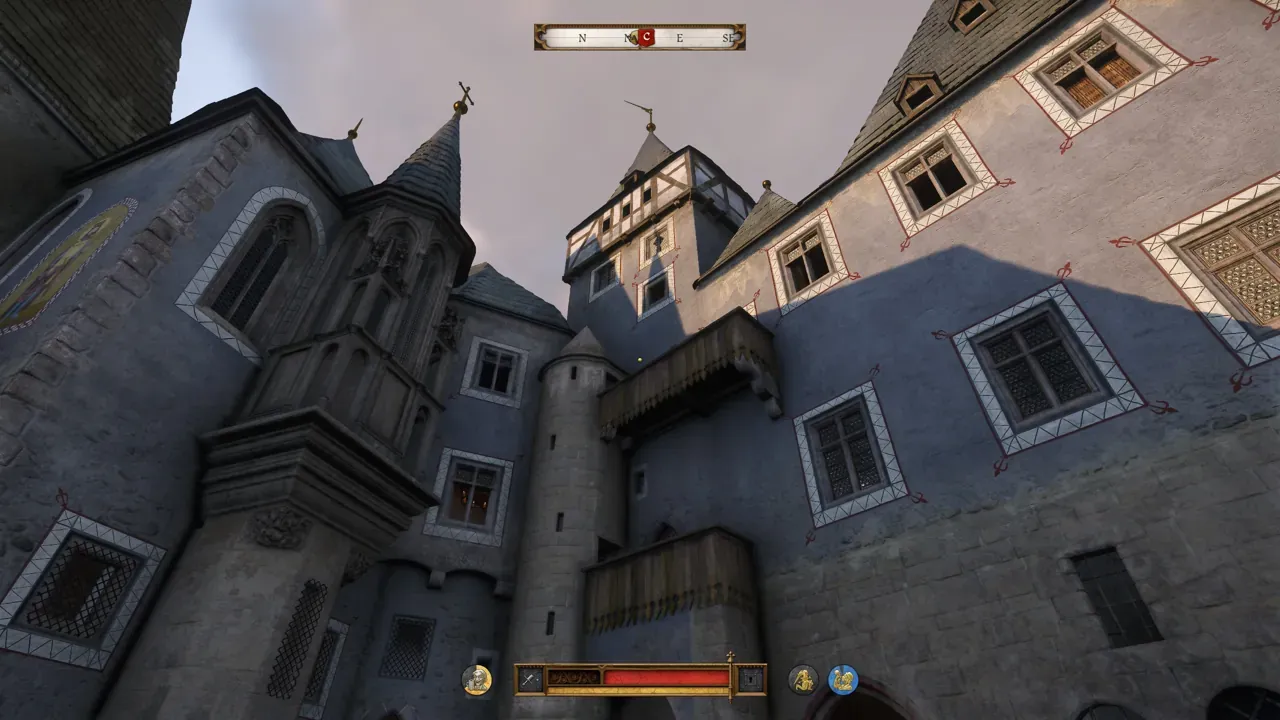
The Technical Aspects
Let's be very clear about this: Kingdom Come: Deliverance II is the most accomplished and spectacular game world ever created. It is a perfectly realized piece of historical fiction that excels on every level. Between my PlayStation 5 and this PC review, I've spent nearly 100 hours lost in the Bohemian wilderness, and I can't wait to return.
As a simulation of life in the 15th century, it is a peerless work of technical brilliance that should be studied and revered for decades to come. Every level of its rivers, cobblestone streets, taverns, and wildlands is designed in a way that you could stare at them for years and not find a fault in the presentation.
At times, I found myself ignoring the main storyline just so I could sit by a river and enjoy the passage of time. I wandered on foot from town to town. I took a pilgrimage to ask for repentance. I drank with travelers and played dice with swindlers. I lived the life of a blacksmith in a country unknown to me, and it felt real in every aspect.
In terms of immersiveness, there is nothing like Deliverance II. It is a masterpiece.
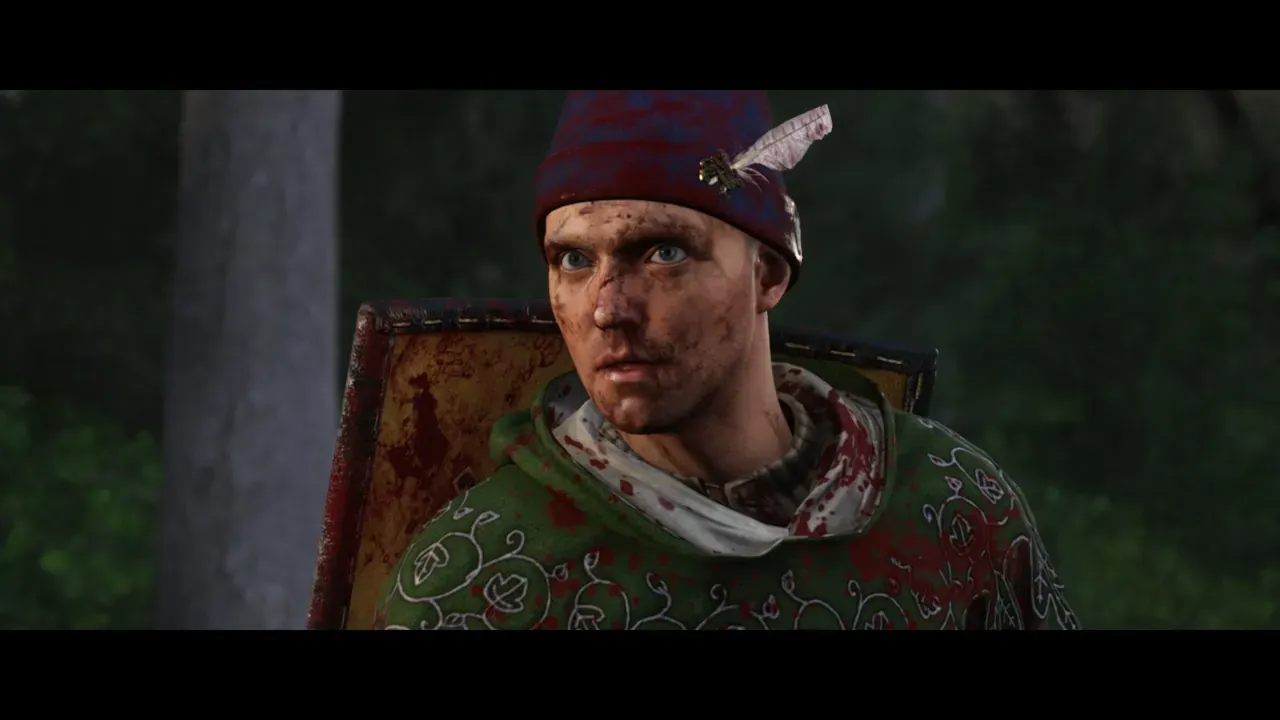
That same praise applies to the fantastic animations and character design, which has improved lightyears from the first game. Even when the characters have to rely on facial expressions alone to project complex emotions, Deliverance II does not fall short. Instead, it delivers a Hollywood-level experience that is rich in subtext where all other competitors fall short.
The soundtrack ranges from local instruments and quaint background music to a full orchestral range that tips its cap to Basil Poledouris more than once. The result is one of the best soundtracks this side of Final Fantasy.
Voice-acting, as well, is uniformly great, and much of that praise is pointed squarely at Tom McKay, who is hugely impressive as Henry. He's with us every step of the way, and there isn't a single fault in his complex, deeply humane performance.
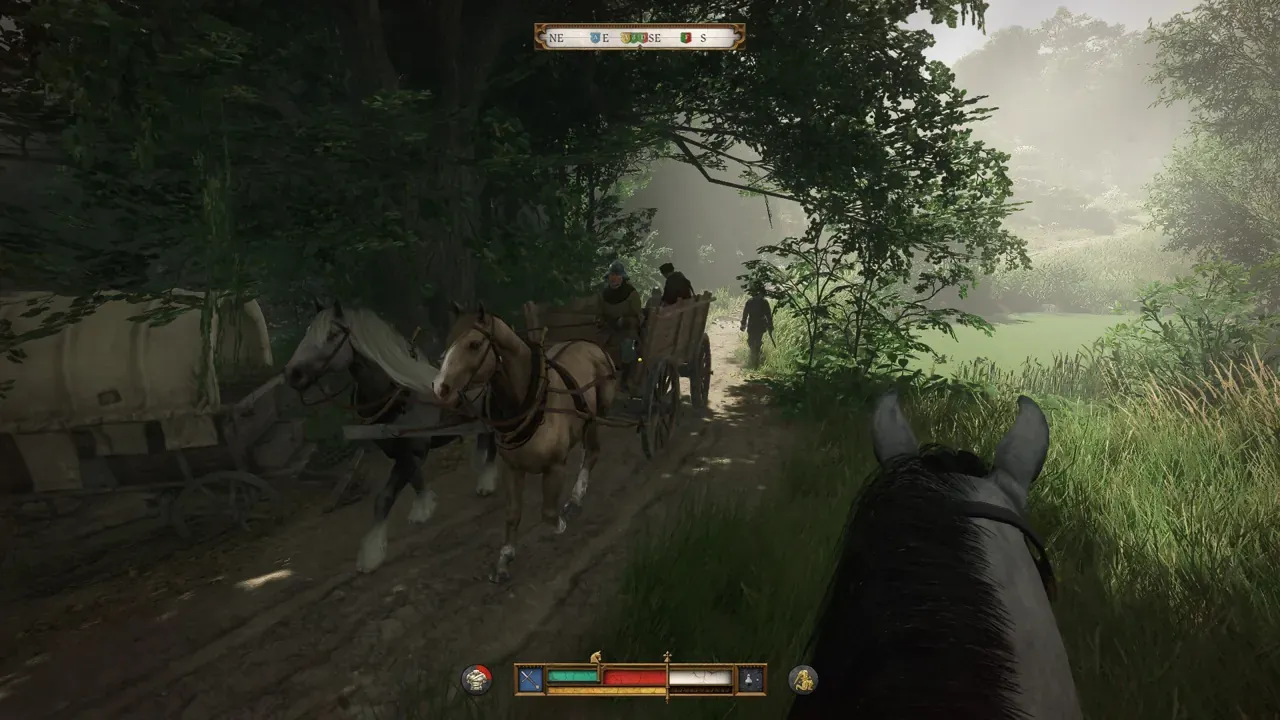
Who is It For?
I wish I could say that Deliverance II is a game for everyone, without asterisks or ifs and buts, yet that's simply not the case.
In its desire to chase "realism" (which is never achieved, by the way), Deliverance II will alienate players who can't keep up with its mechanics or simply don't have time to dedicate themselves to learning them.
It's an odd and frustrating choice, as the game eventually relents and drafts perks and magic potions aplenty to rid itself of these mechanics. But if they're so easily displaced, why introduce them as such hard obstacles in the first place? Why not offer the choice to avoid them, or to play the game on your own terms?
After all, the story is rich with choice, even as the path itself is often hugely linear. Henry will always end up in the same places in the tale, but he'll rarely be the same person. That's as close to freedom as we can get in gaming at this point, and when the story is this good, I'm not complaining.
But I wish the gameplay mechanics were as progressive and revitalizing as the story. Now, they're simply alright at times, but mostly they're a ball and chain that keeps the game from soaring as it should.
On PC, you'll have the chance to mod the hell out of this experience, and that cultivation will allow Deliverance II to shine. The first Kingdom Come introduced a saving mod in the first week of its release, and it has over a million downloads to date. That should have sent a message to the developers, but they stuck to their guns, and there's a certain respectability about that.
That said, I love this game. I think it's a masterpiece in more ways than one. It can still have massive faults to its name and come away as one of the best, most grand titles in the RPG space that you can think of. In the years to come, I think many will claim it as their favorite experience on any platform. Even more will point to it as the starting point for their love of this genre.
Like its characters, it's a complicated and conflicted experience, but also human and multifaceted in a way that most others never achieve.
It is one of the best games of the year, and it's only February.


